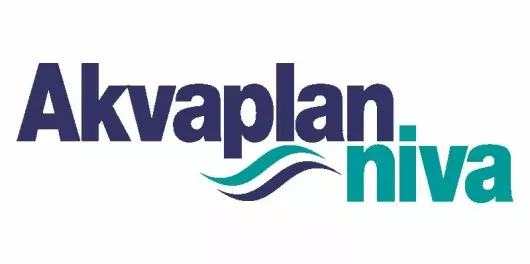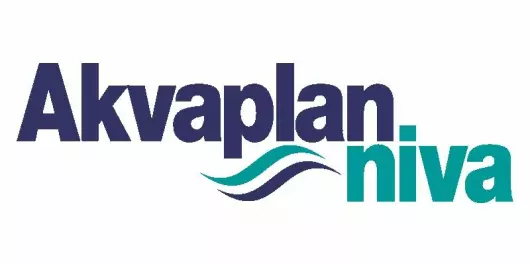Ledig stilling på Universitetet i Oslo
Blindern og Urbygningen (Foto: Wikimedia og Colourbox)
PhD Research Fellowship in Experimental Heavy-Ion Physics
Deadline: 10.05.2020
Job description
Universitetet i Oslo
The University of Oslo is Norway’s oldest and highest rated institution of research and education with 28 000 students and 7000 employees. Its broad range of academic disciplines and internationally esteemed research communities make UiO an important contributor to society.
The research at the Department of Physics covers a broad range of subfields within physics and technology: From space research to medical physics. A good proportion of the research is interdisciplinary, and conducted in close cooperation with collaborators in Norway and abroad. Education and teaching are other essential activities.
We offer a broad range of courses, and the Department is involved in several study programmes at bachelor’s and master’s level. Some of the best lecturers in Norway are amongst our employees, and we are proud of our prizewinning teaching and learning environment. The Department has 200 employees, of which 50 are permanent scientific positions. On a yearly basis 20 students complete their Ph.D. and 50 finish their M.Sc. degree.
A position as PhD Research Fellow in Experimental Heavy-Ion Physics is available at the Department of Physics.
The PhD position is of 3 years duration. If the candidate has the necessary qualifications and based on the teaching need of the Department, the candidate can apply for an additional 25 % teaching duty resulting in a total length of the fellowship of 4 years.
No one can be appointed for more than one PhD Research Fellowship period at the University of Oslo.
Starting date no later than 01.10.2020.
More about the position
The position is associated with the Norwegian ALICE project at CERN, funded by the Norwegian Research Council. The heavy-ion group of the Department of Physics participates in the ALICE experiment, which in 2021 will enter the third round of data taking with ultrarelativistic pp, Pb-Pb and p-Pb collisions at the Large Hadron Collider at CERN (LHC Run-3), after comprehensive upgrades improving tracking performance and readout speed. During this run period, a huge gain (~ 100 ) in event statistics will enable precision measurements of rare probes like charm and beauty hadrons down to low transverse momentum and heavy flavour-tagged jets and their substructure, and provide access to numerous new physics observables. A crucial element in the realization of this physics programme is the development of software frameworks and efficient algorithms for handling the immense amounts of data expected during Run-3. In addition to physics analysis and related software development, the group is also involved in instrumentation activities associated with the ALICE Inner Tracking System (ITS), in collaboration with the heavy-ion groups at the University of Bergen.
The candidate is expected to contribute to the Norwegian ALICE activities within analysis (including dedicated software development) and interpretation of physics data taken with the ALICE detector during the early Run-3 part of the LHC programme.
The Norwegian ALICE groups have extensive experience with charmonium physics and analysis in the di-electron decay channel, centered around the versatile probe J/Ψ which is interesting not merely as a charmonium ground state but also as a major decay product of excited charmonia, beauty hadrons and exotic heavy quark states. Our primary scientific interest for the Run-3 period will be exhaustive quantitative studies of the in-medium behaviour of charm and beauty quarks, their energy loss, transport and thermalization plus their hadronization mechanism, by means of precision measurements of prompt and non-prompt J/Ψ production, their correlations with hadrons plus the quenching and substructure of charmonium- and beauty-tagged jetsA potential specific topic for this PhD research project could be determining the modification of the differential production cross section for prompt and non-prompt J/Ψ (and possibly also for exclusively reconstructed beauty mesons at low pT) in Pb-Pb relative to pp collisions, taking advantage of the high-statistics Pb-Pb data set expected in the fall of 2021. An important part of the PhD project would be contributions to the upgrade of existing physics analysis software to Run-3 standards as well as development of new features, implementing data skimming using fast reconstruction of secondary vertices and beauty tagging via non-prompt J/Ψ.
The candidate will be based in Oslo, but will be expected to spend some time participating in data taking and other ALICE activities at CERN.
Information about the research at The Department of Physics is found on http://www.mn.uio.no/fysikk/english/research/groups/
Qualification requirements
The Faculty of Mathematics and Natural Sciences has a strategic ambition is to be among Europe’s leading communities for research, education and innovation. Candidates for these fellowships will be selected in accordance with this, and expected to be in the upper segment of their class with respect to academic credentials.
Qualification requirements:
- Master’s degree or equivalent in high-energy heavy-ion physics / particle physics
- Excellent programming skills with experience in data analysis and / or simulations
- Fluent oral and written communication skills in English. Please see English requirements for applicants from outside of EU/ EEA countries
- Good social and collaboration skills and ability to work independently and in an interdisciplinary scientific environment
- Candidates without a Master’s degree have until 30 June, 2020 to complete the final exam
Grade requirements:
The norm is as follows:
- The average grade point for courses included in the Bachelor’s degree must be C or better in the Norwegian educational system
- The average grade point for courses included in the Master’s degree must be B or better in the Norwegian educational system
- The Master’s thesis must have the grade B or better in the Norwegian educational system
http://www.mn.uio.no/english/research/phd/application/application.html
Other desired qualifications include:
- Experience from working in large experimental high-energy physics collaborations (LHC / RHIC), preferably with ALICE physics analysis projects
- A scientific profile matching the Norwegian ALICE physics research programme as outlined above
- Knowledge of advanced reconstruction algorithms / machine learning
For candidates who apply for a fourth year including teaching, good knowledge of Norwegian or another Scandinavian language is strongly preferred.
The purpose of the fellowship is research training leading to the successful completion of a PhD degree.
The fellowship requires admission to the PhD program at the Faculty of Mathematics and Natural Sciences. The application to the PhD program must be submitted to the department no later than two months after taking up the position. For more information see:
http://www.uio.no/english/research/phd/
http://www.mn.uio.no/english/research/phd/
We offer
- Salary NOK 479 600 – 523 200 per annum depending on qualifications and seniority as PhD Research Fellow (position code 1017)
- Vibrant international academic environment
- Attractive welfare benefits and a generous pension agreement
- Oslo’s family-friendly surroundings with their rich opportunities for culture and outdoor activities
How to apply
The application must include:
- Cover letter including a description of scientific interests and the motivation for applying for the position (max. 2 pages)
- CV (summarizing education, positions and academic work - scientific publications)
- Copies of the original Bachelor and Master’s degree diploma, transcripts of records and letters of recommendation
- Documentation of English proficiency if needed (please see admission criteria)
- List of publications and academic work that the applicant wishes to be considered by the evaluation committee
- Names and contact details of 2-3 references (name, relation to candidate, e-mail and telephone number)
- Applicants who are interested in teaching need to add to this application a description of their motivation for teaching.
The application with attachments must be delivered in our electronic recruiting system, please follow the link “Apply for this job”. Foreign applicants are advised to attach an explanation of their University's grading system. Please note that all documents should be in English (or a Scandinavian language). Note that applications with missing documents will not be considered further.
Applicants will normally be called in for an interview.
Formal regulations
Please see the guidelines and regulations for appointments to Research Fellowships at the University of Oslo.
According to the Norwegian Freedom of Information Act (Offentleglova) information about the applicant may be included in the public applicant list, also in cases where the applicant has requested non-disclosure.
The University of Oslo has an agreement for all employees, aiming to secure rights to research results etc.
The University of Oslo aims to achieve a balanced gender composition in the workforce and to recruit people with ethnic minority backgrounds.
Contact information
For technical questions regarding the application system, please contact HR Adviser Elin Thoresen, +47 22 85 71 96, e-mail: elin.thoresen@mn.uio.no
Apply for this job














